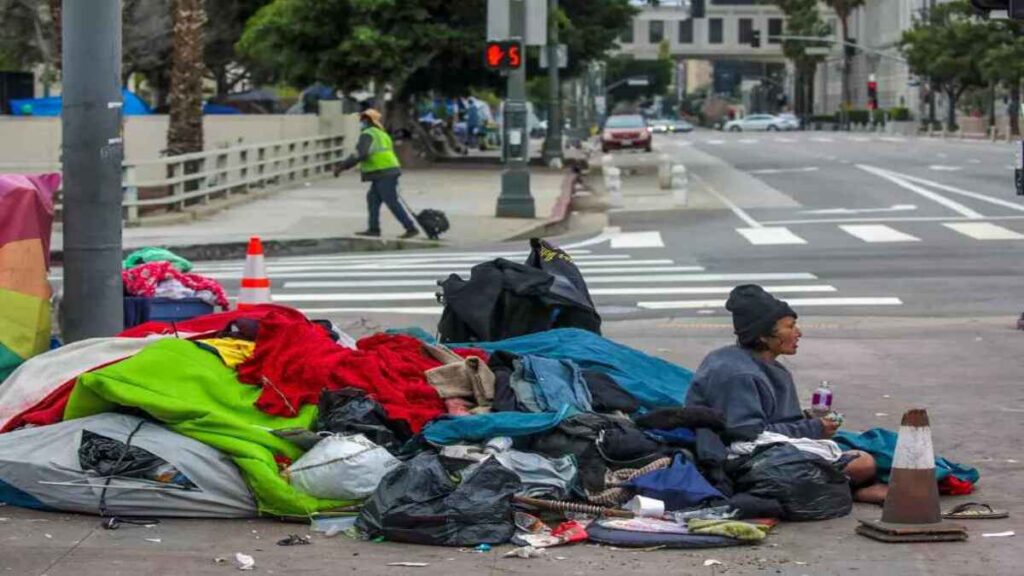
California Governor Gavin Newsom is facing criticism from mental health advocates regarding his proposed solution to the state’s homelessness crisis, centered around Proposition 1 on the March 5 ballot.
The ballot measure aims to amend the state’s long-standing Mental Health Services Act, which imposed a tax on millionaires to fund mental health services. While the Act traditionally allowed counties to allocate funds according to their discretion, Newsom’s proposal seeks to mandate that 60 percent of these funds be allocated towards housing and programs for homeless individuals with severe mental health issues.
However, several mental health advocacy groups have opposed the plan, citing concerns over its costliness and the potential reduction of local funding for existing services.
Joe Wilson, who oversees Hospitality House in San Francisco, questioned the effectiveness of Newsom’s approach, emphasizing the need for additional housing resources but suggesting that alternative strategies might be more efficient.
ALSO READ: Fear Grips Washington DC Amid Violent Crime Surge With Kids Caught Up
California, home to nearly a third of the nation’s homeless population, grapples with a dire situation exacerbated by a lack of mental health services. A significant proportion of the state’s homeless population suffers from mental health disorders, with a stark disparity between the number in need of treatment and those who receive it.
Newsom contends that Proposition 1 would address this gap by providing essential care to vulnerable homeless individuals, thereby improving access to mental health services.
POLL — Should the Government Increase Taxes on the Wealthy To Reduce Economic Inequality?
However, critics argue that the proposed changes could divert funding from existing programs, potentially undermining critical services for homeless individuals. Clare Cortright, from Cal Voices, warned that Proposition 1 could jeopardize decades of progress in mental health services, potentially leading to cuts in crucial programs like outpatient treatment and crisis services.
Moreover, opponents express concerns about the implications of adding beds to locked psychiatric facilities, which could result in involuntary treatment and adverse outcomes for individuals. Shaya French, an organizer with the San Francisco Senior & Disability Action, raised apprehensions about coercion in treatment, highlighting the importance of voluntary participation for successful outcomes.
Mark Salazar, executive director of the Mental Health Association of San Francisco, vehemently opposed the measure, echoing concerns about coercive treatment and emphasizing the need for alternatives.
ALSO READ: DOJ Says Connecticut Man Faces Deportation After Involvement in $300,000 Home Depot Theft Scheme
Fiscal policy organizations, including the Hoover Institution, also caution against Newsom’s proposal, citing potential negative impacts on the state’s debt and advocating for alternative approaches to addressing mental health challenges.
As Proposition 1 remains a contentious issue, stakeholders continue to engage in dialogue and advocacy efforts to address California’s complex intersection of homelessness, mental health, and public policy.
You Might Also Like:
Iowa School District to Pay $20,000 Settlement in Gender Policy Lawsuit
Great News As Lake Mead Water Levels Rise After Years of Drought
Businessman Kevin O’Leary Criticizes Canada’s Leadership, Says They Mismanage the Country
Texas Builds 2,300-Bed Military Base Camp at Border to Fight Illegal Migrants Influx
7-Year-Old Girl Dies at Florida Beach After Getting Trapped in Sand Hole
